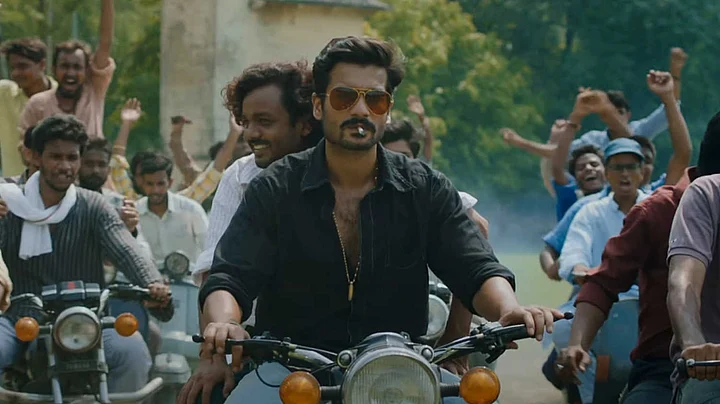"Problem reservation mein nahi hai, problem hai caste-based reservation mein (The problem is not in the reservation, the problem is in the caste-based reservation)" - this is repeatedly stated in Nikhil Bhat's Hurdang, which released in theatres on 8 April. Ever since the trailer of the Sunny Kaushal-starrer film dropped, it received severe criticism on social media for its messaging. And rightly so.
Hurdang makes no attempt to rise above its myopic vision. The film is set in 1990 and follows Daddu (Sunny Kaushal), a college student in Allahabad, who believes in snatching things by creating a ruckus. He has joined hands with the highly corrupt and shrewd Loha Singh (Vijay Varma) to make money by selling students examination question papers. Singh's focus is to become an MLA, so when the ruling government proposes to implement the Mandal Commission’s recommendation to reserve 27 per cent public sector jobs for Other Backward Castes (OBCs), he sees it as a perfect opportunity to exploit Daddu for his gains.
Brainwashed by Singh, Daddu jumps headlong into the trap, convinced that the reservation is discriminatory to the upper castes. Daddu throws aside any hope of cracking the IAS exam because Singh has drilled it into him that no matter what, people will take advantage of the quota system to secure admission. What does Daddu do instead? He gathers students, stages a protest outside the Chief Minister's residence and gets into a fight at the bat of an eyelid.
The entire movie is filled with tokenism. There's Daddu's partner, Jhulan (Nushrratt Bharuccha), who is an OBC and an IAS aspirant. Early on, she lectures her father about the importance of "equal opportunity". "I have the privilege of getting into expensive coaching centres and availing the best education. The reservation should be for those who are deprived of such opportunities", Jhulan says. However, by the second half, she has changed her stance. Now, Jhulan believes that reservations should exist, but not on the basis of caste.
We never see the narrative from the other side. There's a small gathering where a dubious person is seen lecturing students on the benefits of this reservation, only to be beaten up by Daddu. That's it.
Hurdang is a movie that is all consumed by its problematic messaging. It lacks nuance, and enough research hasn't been done on the agitation staged by the students of Allahabad in 1990. It does not delve into why the Mandal Commission was implemented in the first place and fails to recognise the importance of the reservation. Instead, it's a privilege, upper-class person's rant against the so-called discrimination they will be facing if the plan comes into force.
"A Brahmin's son can also be poor, so can someone belonging to other castes. That's why it's important to protest against caste-based reservation. The best solution would be to make education free for all" - says a character in the movie. Despite decent performances from actors like Vijay Varma, Hurdang is a movie that has absolute disregard for representation and reeks of privilege. That should be reason enough for concern.
(At The Quint, we question everything. Play an active role in shaping our journalism by becoming a member today.)
